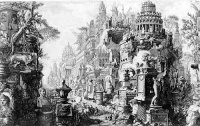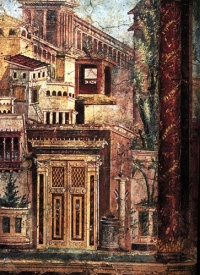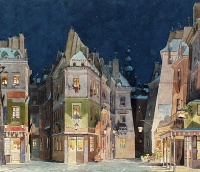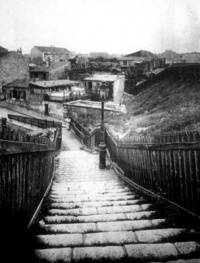City
From The Art and Popular Culture Encyclopedia
|
"Fex urbis lex orbis"--Les Misérables (1862) by Victor Hugo |


If this wiki were a city, it would feature prominently nightclubs, record stores, a red light districts, museums, libraries, second hand book stores and comic shops.
|
Related e |
|
Featured: |
A city is an urban settlement with a particularly important status which differentiates it from a town.
City is primarily used to designate an urban settlement with a large population. However, city may also indicate a special administrative, legal, or historical status.
Birth of cities
For Paul Virilio, the transition from feudalism to capitalism was driven not primarily by the politics of wealth and production techniques but by the mechanics of war. Virilio argues that the traditional feudal fortified city disappeared because of the increasing sophistication of weapons and possibilities for warfare. For Virilio, the concept of siege warfare became rather a war of movement. In Speed and Politics, he argues that 'history progresses at the speed of its weapons systems'.
See also


.jpg)


